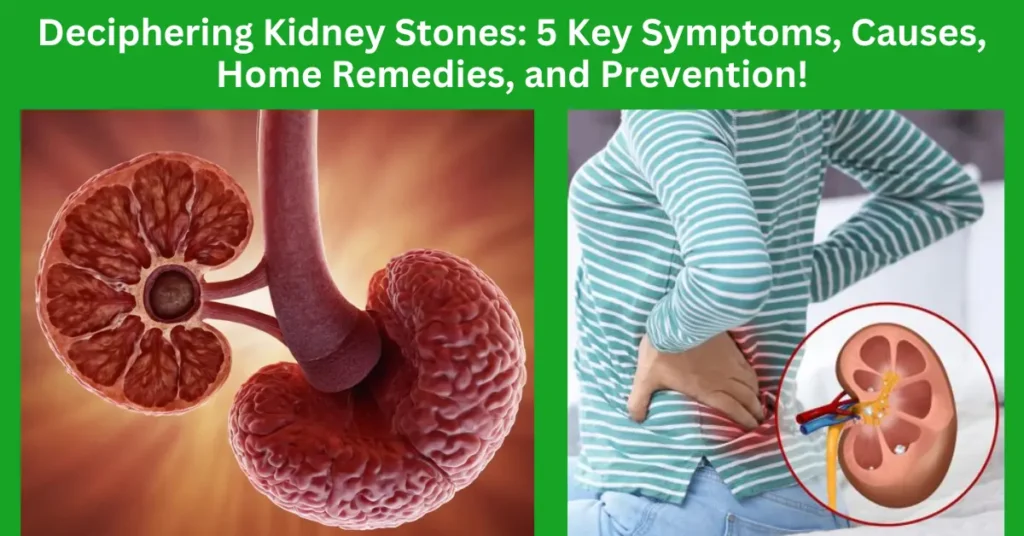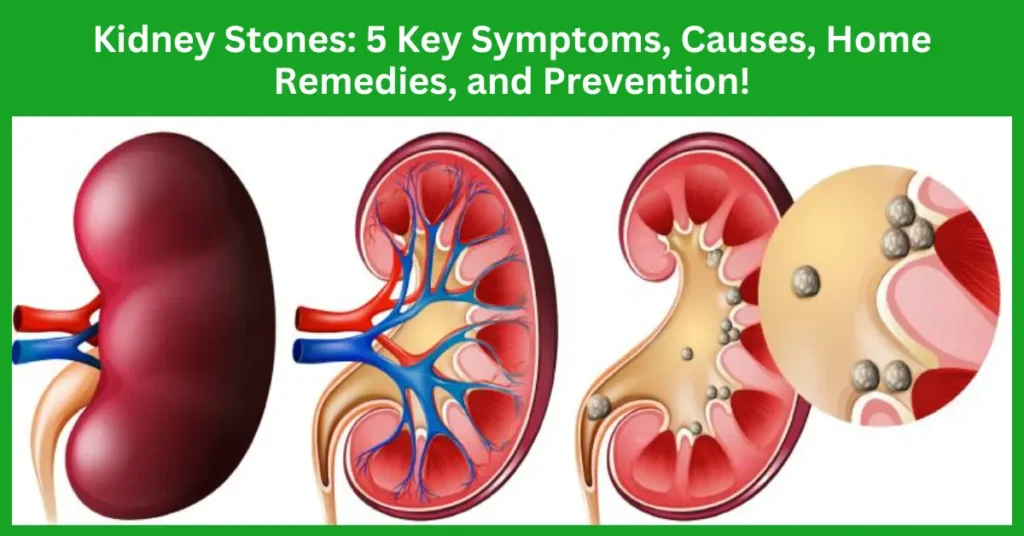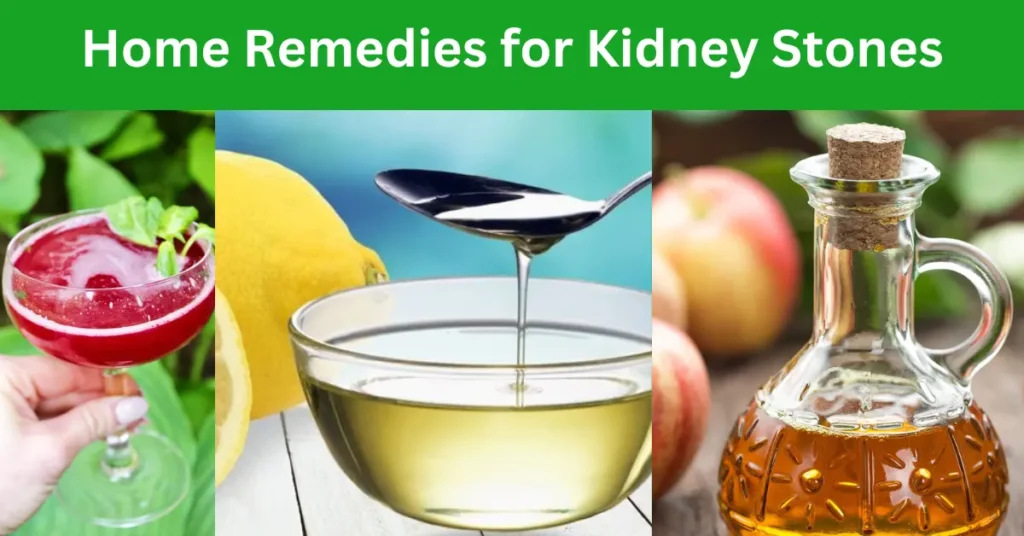Introduction
Kidney stones, a ubiquitous and oft agonizing malady, plague millions globally. These rigid mineral aggregates manifest in the kidneys, instigating intense discomfort. Understanding the manifestations and etiologies of kidney stones helps one manage and prevent them with deep understanding. This paper details kidney stones, their formation, prevention, treatment modalities, and home remedies.
Defining Kidney Stones
Kidney stones are crystalline conglomerates that solidify within the renal structures. Their dimensions range from minuscule grains to substantial golf ball-sized entities. The primary categories include:
Calcium stones are mainly made up of calcium oxalate. Are the common type. Striate stones usually develop as a result of infections. Uric acid stones are often seen in people who consume a lot of purine or have gout. Cysteine stones, which are less common occur in individuals, with the genetic condition cystinuria.
How Kidney Stones Form
Kidney stones materialize when urinary volume diminishes or when stone-forming substances in the urine surge. An elevated concentration of minerals and salts leads to crystallization and agglomeration, forming stones. Contributory factors encompass dehydration, high-protein diets, and specific medical conditions.
Recognizable Symptoms of Kidney Stones
Identifying kidney stone symptoms early can facilitate prompt intervention. Common indications include:
At first you may experience pain in your back sides or lower belly along with needing to pee and having cloudy or smelly urine.
More severe signs to watch out for are pain feeling sick to your stomach throwing up a high body temperature and shivering.
Complications: Stones left untreated can precipitate urinary tract infections and renal impairment.
Kidney Stone Diagnosis
Diagnosis usually includes:
When you talk about your symptoms and medical history with your doctor it’s a part of the process, during the history and physical examination.
Tests like CT scans, X-rays and ultrasounds are used to locate kidney stones. Furthermore blood and urine tests can offer insights into the condition.
Knowing the factors that lead to kidney stone formation is essential for prevention. Common triggers include salt, sugar and animal protein intake; medical conditions, like hyperparathyroidism, gout and urinary infections; well as a genetic predisposition shown by a family history of kidney stones. Preventive Measures for Kidney Stones
Prevention is superior to cure. Consider these tips to avert kidney stones:
- Make sure to drink plenty of water to stay hydrated and reduce the concentration of substances, in your urine.
- Modify your eating habits by cutting down on salt and animal protein and include fruits and vegetables, in your diet.
- Stay at a weight. Add regular exercise to your daily schedule.
Home Remedies for Kidney Stones:
Apart from interventions there are remedies that can offer relief from kidney stones. One such remedy involves mixing lemon juice and olive oil in proportions and ensuring hydration by drinking plenty of water. The citric acid present in lemon juice assists, in breaking down calcium based stones. Another remedy is to mix 2 tablespoons of Apple Cider Vinegar with 8 ounces of water. Consume throughout the day to help dissolve stones.
Note: If you want quick relief from any kinds of kidney disease then you can take natural supplements. For which you can CLICK HERE.
Basil Juice: Stabilizes uric acid levels, preventing stone formation. Regularly drink basil tea or juice.
Pomegranate juice contains antioxidants that aid, in removing toxins from the body. Watermelon, with its water content can assist in passing kidney stones. Dandelion root juice is recognized for its detoxifying properties for the kidneys. Supporting their function.
Options for Managing Kidney Stones Several treatment avenues exist for kidney stones:
- Managing Pain: Using, over the counter pain relievers and prescribed drugs.
- Treatment Options: Using medication to assist in passing kidney stones or hinder their development. Surgical Options: Consider procedures such, as shock wave lithotripsy or percutaneous Nephrolithotomy.
When to Consult a Physician It is crucial to seek medical assistance if you experience:
- Warning Signs: Severe pain, hematuria, or urinary difficulties.
- Emergency Situations: Persistent vomiting, fever, and chills.
Living with Kidney Stones
To effectively deal with kidney stones it is important to follow a plan. Make sure to drink plenty of water stick to guidelines and keep up with your health checkups.
Dispelling Misconceptions, about Kidney Stones
There are beliefs circulating about kidney stones. Let’s clarify a few:
- Myth: Only the elderly develop kidney stones.
- Truth: Kidney stones are not selective, in age.
- Misconception: Cranberry juice serves as a shield, against kidney stones.
- Assertion: Consumption of cranberry juice has the potential to ward off kidney stones. Reality; Consumption of cranberry juice might actually elevate the likelihood of developing types of stones.
The Effects of Kidney Stones, on Everyday Life
Kidney stones have an impact, on routines causing both physical discomfort and emotional strain. By managing symptoms and adopting strategies these effects can be mitigated.
Ongoing research aims to enhance kidney stone treatment and prevention. Advances in medical technology and genetic insights promise more effective solutions.
Commonly Asked Questions:
What are the signs of kidney stones?
Early signs may include experiencing discomfort, in the back, side or lower abdomen urges to urinate and urine that appears cloudy or has an unpleasant odor.
Can kidney stones be avoided by changing what we eat?
While what we eat matters, in preventing kidney stones drinking water and adjusting our lifestyle are just as crucial.
How time does it usually take for a kidney stone to pass through?
The duration can range from a days to weeks depending on variables, like the stones size and where it’s located.
Are there any solutions for dealing with kidney stones?
While there isn’t a cure adopting measures along with appropriate treatments can effectively manage the condition and reduce the chances of recurrence.
If I suspect I might have a kidney stone, what steps should I take?
It is advisable to increase your water intake and seek guidance from your doctor for a diagnosis and suitable treatment plan.
Suggestions for Sustaining Kidney Health in the Long Run
To maintain optimal kidney health over time following an episode of kidney stones ongoing lifestyle adjustments are crucial:
- Dietary Changes: Customize you’re eating habits by reducing consumption of foods in oxalates like spinach, nuts and chocolate—particularly if you are prone to calcium stones. Including more citrus fruits in your diet can be beneficial, in preventing stone formation.
- Stay active: Make sure to exercise to keep a weight and enhance your body’s functions, which can lower the chances of developing stones.
- Keep up with your health appointments: Plan visits, to the doctor to check on your kidney health and spot any signs of stone formation or other kidney problems.
Cutting Edge Treatments and Upcoming Studies
The field of kidney stone treatment and prevention is always changing. Present studies are delving into:
- Genetic Research: Exploring the factors that play a role, in kidney stone formation aiming to create individualized prevention approaches.
- Nano engineering: Advancing Nano medicine to improve the breakdown of stones, with side effects compared to methods.
- Innovative Pharmaceuticals: Developing medications to hinder mineral aggregation in the kidneys or enhance the dissolution of stones.
Psychological Impact and Support Systems
Dealing with kidney stones can take a toll on your well-being. It’s crucial to consider the impact:
- Mental Wellness Support: Consider seeking counseling or therapy to handle the stress and anxiety that come with recurring kidney stones.
- Community Support: Engage in support groups where you can connect with others facing challenges and gather insights.
- Knowledge and Awareness: Stay updated on kidney stone information to learn about treatments, dietary advice and preventive strategies.
Advancements, in Kidney Health Technology
Technology plays a role in managing and preventing kidney stones:
- Tele health Services: Allow for consultations with specialists from the comfort of your home reducing the need, for frequent hospital visits.
- Health Apps, for Phones: Keep an eye on your fluid intake, diet and symptoms to make sure you’re staying proactive about your health.
- Smart Wearable Gadgets: Keep track of your signs. Catch any early signs of trouble giving you timely reminders to take care of yourself.
Different Approaches to Managing Kidney Stones Worldwide
The way kidney stones are managed varies around the world depending on peoples eating habits, factors and access to healthcare:
- Countries in the West: Diets high in protein and sodium play a role, in the rates of kidney stones. Advanced medical treatments and access to healthcare facilitate effective management.
- Asian Countries: Higher incidences of uric acid stones due to dietary patterns rich in purines. Traditional remedies often complement medical treatments.
- 3 In developing countries the lack of access, to healthcare services and diagnostic tools presents obstacles in dealing with kidney stones. It is important to focus on educating the public about health and implementing measures.
Note: If you want quick relief from any kinds of kidney disease then you can take natural supplements. For which you can CLICK HERE.
Promoting Practices for Kidney Health
Embracing practices can have positive impacts on personal well-being and the environment:
- Eco Conscious Hydration: Opt for water bottles to stay hydrated and reduce plastic consumption.
- Fresh and Local Produce: Choose locally grown foods to minimize exposure to substances and support eco-friendly farming methods.
- Eco Friendly Lifestyle: Decrease the use of processed foods and toxic chemicals in household items, which contributes to health and environmental sustainability.
Sharing Personal Experiences and Case Studies
Gaining insights, from real life stories and medical cases can offer lessons and motivation:
- Inspiring Narratives: Hearing from individuals who have effectively managed their kidney stones by making lifestyle changes and preventive choices.
- Medical Case Reviews: in depth examinations of cases that showcase treatment strategies and their results.
Conclusion
Kidney stones can be effectively managed when one is aware of them and takes steps. Ensure your kidney health by recognizing its signs, reasons and ways to prevent them. Embrace a lifestyle stay informed, about the recent treatments and studies and seek assistance when necessary. Just keep in mind that your kidneys are crucial, for your health so its important to look after them >>Read More<<


